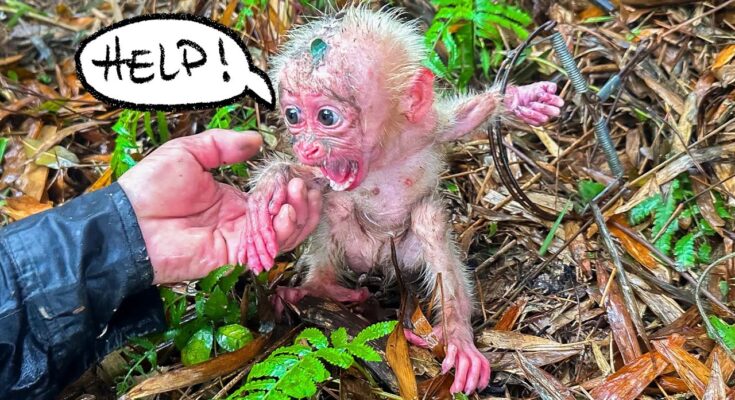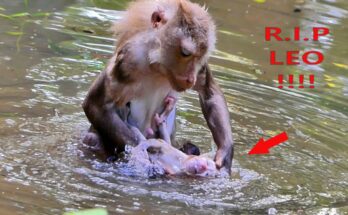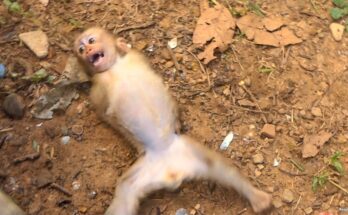In the dense, green heart of the jungle, where towering trees reach for the sky and wildlife thrives in chaotic harmony, a tiny cry pierces the morning air — faint, trembling, and filled with desperation. It’s the weak cry of a poor baby monkey, barely old enough to cling to branches on its own. His voice is not strong, but it carries a powerful message: fear, hunger, and the longing for comfort.
This little monkey has been separated from his troop, perhaps during a sudden predator scare or a chaotic scramble across the canopy. Now, he sits on a low branch, vulnerable and alone. His tiny limbs tremble as he tries to call out, his eyes wide with confusion. The once bright world around him now feels cold and threatening. Every rustle in the underbrush, every unfamiliar sound sends a shiver down his spine. His calls are not loud or commanding, but soft and shaky — a mere whisper compared to the mighty cries of the adult monkeys.
His cry may seem small, but it’s heart-wrenching to witness. It’s a cry of pure innocence, of a creature who has yet to understand the harshness of the wild. He calls not just for his mother, but for safety, warmth, and the reassuring touch of family. Each time he opens his mouth to cry, it’s as though his tiny soul is pleading with the world not to forget him.
In a place where only the strong survive, this baby’s struggle is a reminder of nature’s fragile side. His weak voice echoes through the trees, a symbol of how precious and delicate life can be. Sometimes, a cry like his goes unheard, swallowed by the vastness of the forest. But other times, it reaches the right ears — perhaps his mother’s, frantically searching, or a kind-hearted passerby who stops to help.
“The Poor Baby Monkey’s Weak Cry for Help” is not just a scene from the wild — it’s a story that touches the human heart. It speaks of vulnerability, hope, and the universal need for love and protection. Even in the wildest corners of the world, the softest voices can carry the most powerful emotions.



